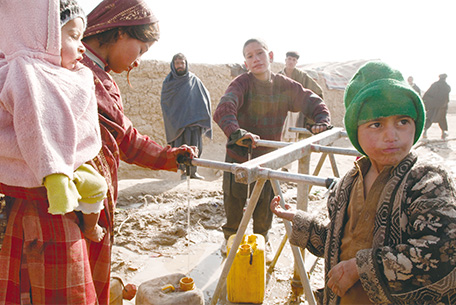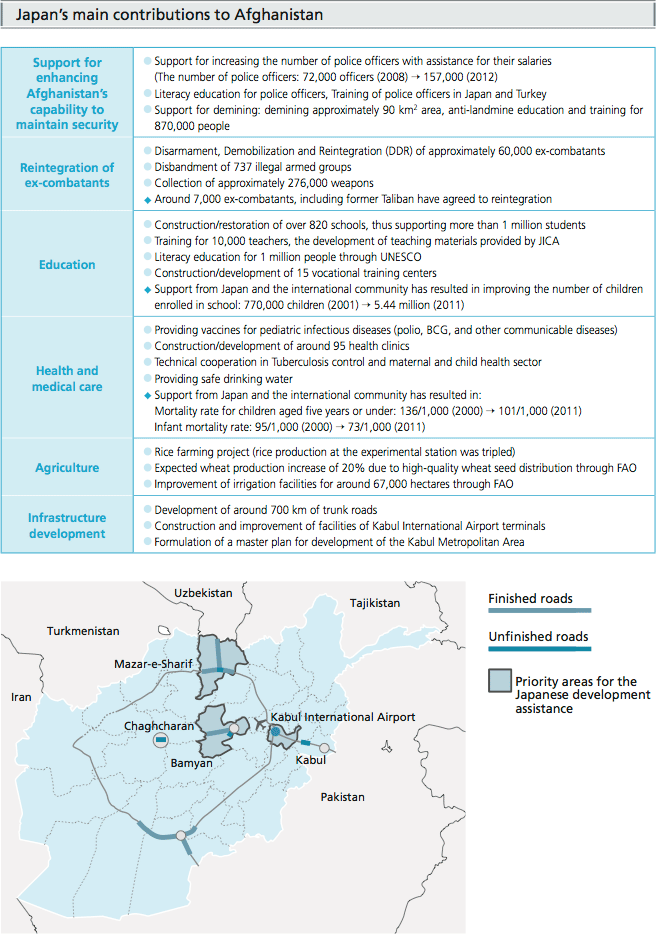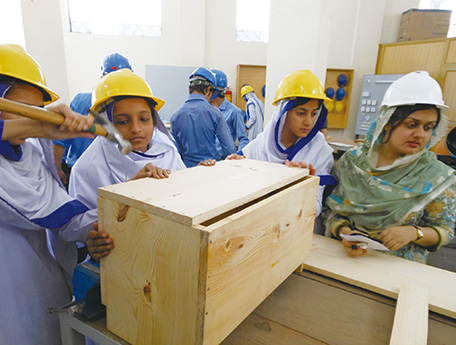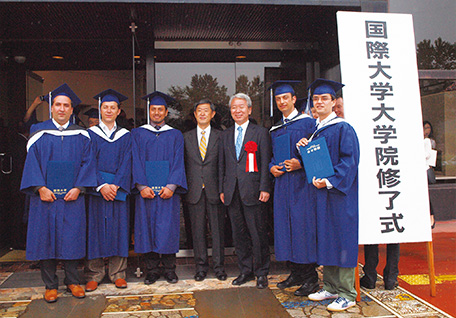Japan's Official Development Assistance White Paper 2013
(1) Assistance to Afghanistan and Pakistan
The continuing unstable situation in Afghanistan and Pakistan is a problem not only for these countries and the surrounding region, but for the entire world. The international community, including Japan, supports Afghanistan to prevent the country from stepping back to being a hotbed for terrorism. The stability of Pakistan, which plays an important role in eradicating terrorism including military operations along the border with Afghanistan, is a key to the peace and stability of the region and the international community.
<Japan’s Efforts>
●Afghanistan
Japan has consistently extended assistance of Afghanistan with the total of approximately $4.935 billion since October 2001.
Japan and Afghanistan jointly held the Tokyo Conference on Afghanistan on July 8, 2012. Representatives from around 80 countries and international institutions including Afghan President Hamid Karzai, UN Secretary-General Ban Ki-Moon and then-U.S. Secretary of State Hillary Clinton joined the conference and unveiled the Tokyo Declaration, which outlines a new partnership between Afghanistan and the international community throughout the “Transformation Decade” (2015-2024) following the security and political transitions. Japan announced that it would provide up to around $3 billion of assistance to Afghanistan in about five years from 2012 in the fields of socio-economic development and enhancement of security capacity. Japan also announced that it would implement assistance projects worth around $1 billion in neighboring countries of Afghanistan to encourage regional cooperation between Afghanistan and its neighboring countries.

Water facility in a camp for internally displaced persons in Kabul, Afghanistan. (Photo: Mika Tanimoto / JICA)

●Pakistan
Japan has been actively engaged in assisting Pakistan since Pakistan announced its intention to fight against terrorism in cooperation with the international community following the terrorist attacks in the United States in 2001. In April 2009, the Japanese government co-hosted the Pakistan Donors Conference with the World Bank in Tokyo, and announced that it would extend up to $1 billion in assistance to Pakistan in two years. (Note 12) In November 2009, Japan announced the New Strategy to Counter the Threat of Terrorism and then steadily implemented the assistance of over $1 billion for sustainable and stable development of Pakistan, focusing on economic growth, macroeconomic reform, poverty reduction, and bringing stability to the lives of people in Khyber Pakhtunkhwa province (formerly known as the North-West Frontier Province) and Federally Administered Tribal Areas (FATA), which are at the border with Afghanistan and are breeding grounds for insurgents in and outside of Pakistan. (Note 13)

Female students participating in woodwork exercise at the Government College of Technology Railway Road, Lahore in Pakistan. (Photo: Minoru Ito) (See “Stories from the field”)
Note 12: Premised on the implementation of an IMF program aimed towards macro-economic stabilization, including economic and financial aspects.
Note 13: Includes aid for flooding in FY2010
●Afghanistan
Project for the Promotion and Enhancement of the Afghan Capacity for Effective Development (PEACE)
Technical Cooperation Project (February 2011 – Ongoing)
Afghanistan is in the midst of reconstruction and redevelopment following extended periods of conflict and as such, the development of skilled human resources is indispensable. Japan commenced the Project for the Promotion and Enhancement of the Afghan Capacity for Effective Development in order to foster individuals who are capable of leading initiatives crucial to the development of Afghanistan, particularly in the fields of agriculture, rural development and infrastructure development. This project provides young Afghan administrators and university staff the opportunity to complete master’s programs at Japanese graduate universities in order to enhance their capabilities. As of August 2013, 89 trainees are studying at 26 postgraduate schools across Japan. In June 2013, the first graduate of the project completed the training and returned to Afghanistan with a strong determination to take up the challenge of leading development and the future of the nation. In September 2013, an additional 85 trainees are expected to come to Japan.
In addition to providing opportunities for studying in Japan, the project also facilitates the strengthening of cooperation with Afghanistan government officials as well as developing a system that allows trainees returning to Afghanistan to contribute to the country’s development by putting their new skills and knowledge into practice. It is hoped that the project’s trainees will help Afghanistan become a peaceful and stable country and also act as a friendship bridge between Japan and Afghanistan.
(As of August 2013)

First graduates of the PEACE Project from International University of Japan (Niigata Prefecture) (Photo: JICA)
